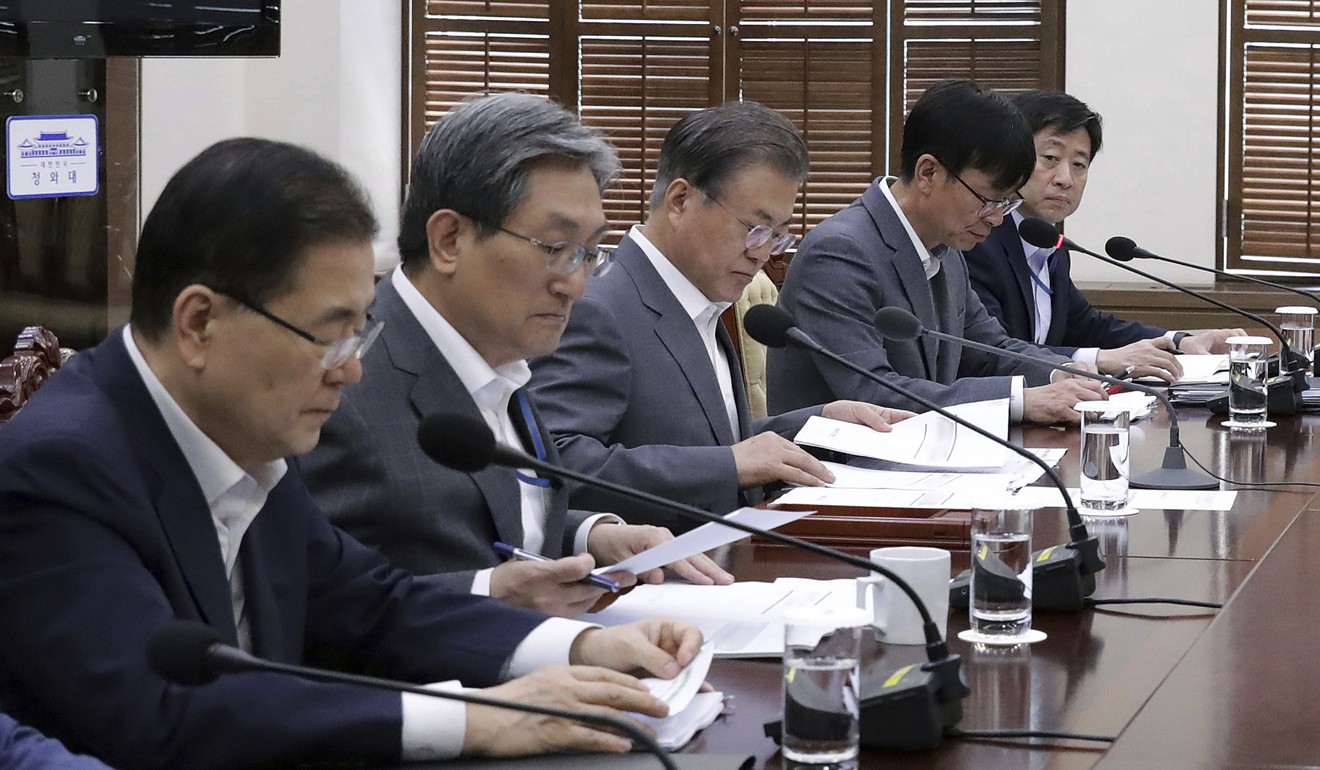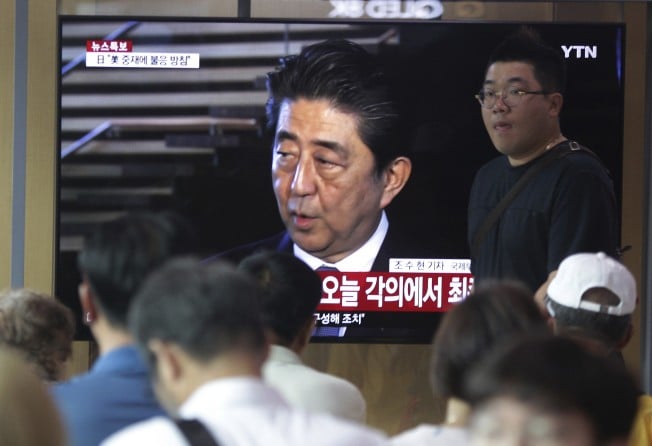
South Korea’s Moon Jae-in warns Japan of retaliation for trusted export list removal
- Tokyo said it did not intend for the move to affect relations with Seoul. But the South Korean president said his government would hold Japan responsible for what happens next
- Moon Jae-in pledged that the ‘reckless’ economic measures would not cripple the country’s economy, in remarks that were televised live

South Korean President Moon Jae-in condemned Japan’s decision to remove South Korea from a list of trusted export destinations, calling it “reckless” and warning he would hold Tokyo accountable for the impact of its move.
In a strongly-worded statement that was televised live, Moon attacked Japan for ignoring his government’s efforts to diplomatically resolve their ongoing dispute over territory and history and threatened to take unspecified action against Tokyo.
“[We] unequivocally warn that the Japanese government will be entirely held accountable for what will unfold going forward ... the Korean government will resolutely take corresponding measures in response to Japan’s unjustifiable economic retaliatory measures,” he said at a cabinet meeting called at short notice.
Bilateral tensions between the two US allies have escalated in the past month after Japan decided from July 4 to tighten exports of key materials used to manufacture semiconductors and display panels for smartphones and televisions to South Korea.
On Friday, Japanese Prime Minister Shinzo Abe’s cabinet voted to strike its neighbour from a so-called “white list” of countries that benefit from less stringent checks. The removal will take place on August 28, the government said.
Trade Minister Hiroshige Seko told reporters Japan did not intend the move to affect relations with South Korea. But the matter has been seen by Seoul as having major implications for its already struggling economy, and it earlier warned it could rethink its security cooperation with Tokyo.
Moon did not mention the bilateral military information-sharing agreement both countries have that is coming up for renewal. The deadline for notifying Japan of such a decision comes August 24, amid North Korea ramping up its tests of ballistic missiles that experts say are designed to strike US allies in East Asia.
But he pledged that Japan’s move, while posing challenges to the South Korean economy, would not cripple it.
“We will never again lose to Japan ... just as we have always done in the past, we will in fact turn adversity into opportunity to leap forward,” Moon said.
Still, South Korea’s two tech giants, Samsung Electronics and SK Hynix, have been struggling with the earlier export restrictions. Shares of Samsung fell as much as 2 per cent in Seoul on Friday, while Hynix dropped as much as 3 per cent.
The US earlier said it would not get involved in the dispute, although it did urge for both sides to continue negotiations. US Secretary of State Mike Pompeo is set to meet with his counterparts from the two countries – Japan’s Taro Kono and South Korea’s Kang Kyung-wha, on the sidelines of a regional forum in Bangkok later in the day.
Five of America’s largest tech industry groups have written a joint letter to the trade ministers of Japan and South Korea to cool tensions that threaten global production, saying too much was at stake. But Tokyo has said its neighbour is lax on management of sensitive materials and that its move is a matter of national security. Seoul denies the claim of improper controls.

Long-fraught ties between Japan and South Korea have turned increasingly sour in recent months, potentially hampering their ability to work together to counter threats from North Korea and China. Much of the ill will relates to whether Japan has shown sufficient contrition for its 1910-45 occupation of the Korean peninsula.
Japan was incensed by South Korean court rulings holding Japanese companies liable for cases of forced labour during the colonial period. The Japanese government says all such claims were settled under a 1965 treaty, while South Korean courts have said the agreement did not cover the emotional pain and distress suffered by the victims.
A senior South Korean government official who asked not to be identified said list removal would probably mean the country’s economy will grow less than forecast this year. South Korea’s imports from Japan slid 9 per cent in July, but that was in line with the decline in demand due to falling exports, according to the trade ministry.
Still, Japanese officials have argued that the changes would not have much long-term effect on legitimate exports. Economists at Goldman Sachs and Bank of America Merrill Lynch have also argued any disruptions from Japan’s tighter export regulations are likely to be short-lived.
Opinion polling shows that Abe and South Korean President Moon Jae-in have each won support at home for taking a tough stand on the matter. Even so, Japan could arguably end up hurting its own economy, where many sectors are closely meshed with South Korea’s.